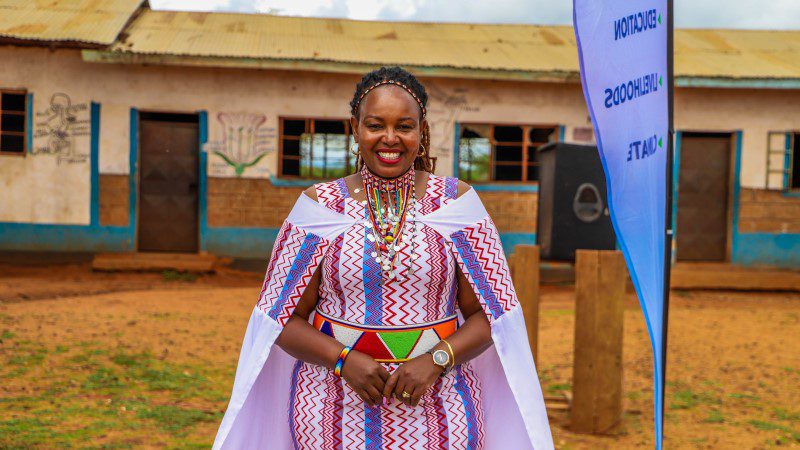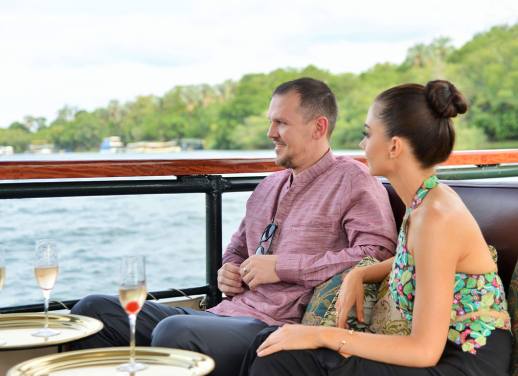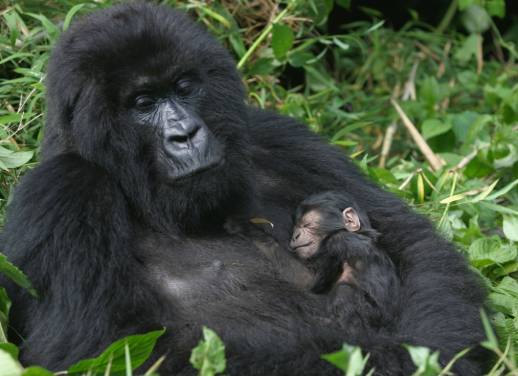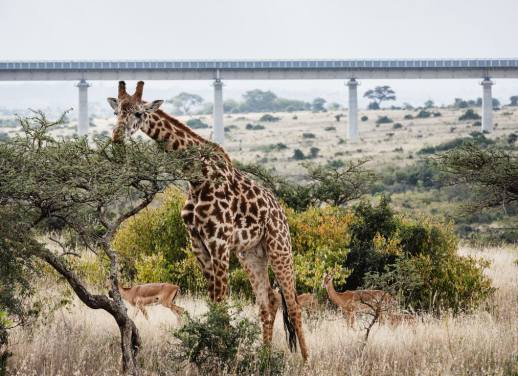In patriarchal pastoral communities in Kenya, women and girls face significant challenges, including limited access to education and poor reproductive health care, which are exacerbated by poverty and drought. The Intrepid Foundation’s new partner, Patinaai Osim, is working to break the cycle of inequality and empower the next generation.
By equipping women and girls with tools and knowledge through educational and skill-building programs, Semerian Sankori – proud indigenous Maasai woman and founder of Patinaai Osim – is helping steer her community towards a brighter, more sustainable future.
‘Our partnership with The Intrepid Foundation holds great significance for Patinaai Osim. It enables us to further our impact, promote our values and create positive change in the lives of Maasai women and their communities’, she says.
Intrepid’s General Manager for East Africa, Samuel Karani, is excited about the partnership and what it means for his region. ‘For me, Patinaai Osim’s impact on local people is what thrills me. They have unique ideas that empower communities – and particularly women – to improve their livelihoods.’
Tackling inequality, poverty and environmental challenges is no mean feat, especially in Maasai societies with deep-rooted traditions. So how do they plan to do it? We caught up with Semerian to learn more.
Where it all began
Starting a non-profit was never part of Semerian’s career plan. When she moved to Perth, Australia from a remote village in Kenya to study tourism management, she had a clear – if a little rose-tinted – vision: to return home after her studies and open a lodge staffed by local Maasai people. This way, she could give back to her community while getting to ‘be on holiday for the rest of [her] life’.
But fate had other plans for Semerian. After graduating, she met her partner and decided to stay longer in Australia, enrolling to study a master’s in business. Then, a short visit home in December 2005 changed the course of her life forever.
‘Kenya had such a bad drought. Usually in December it rains a lot. But when I went back to Isara – where I was born and brought up – there were animal carcasses everywhere. The stench was so bad. And that was the day I decided to change direction and do community development instead.’
Two years, one wedding and another degree later, she told her husband ‘my community needs me more than Australia needs me’ – and bought a one-way ticket home, where she founded Patinaai Osim.
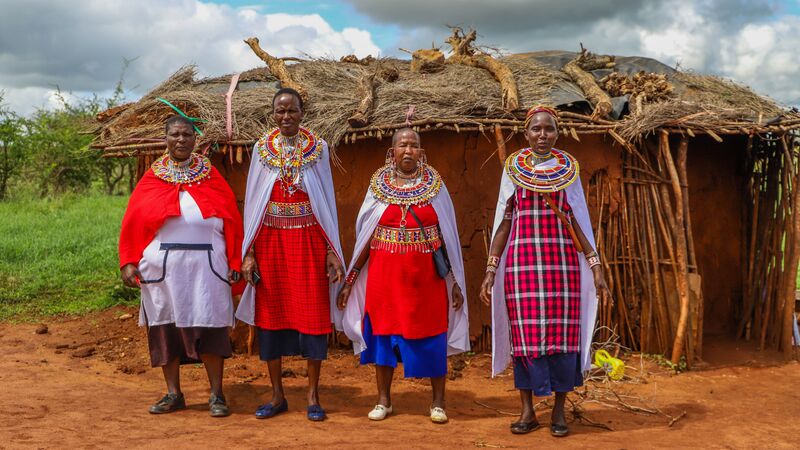
The mother of all missions
‘“Patinaai Osim” is a term of endearment that Maasai mothers use for their children – like “sweetie,” says Semerian. ‘It means “the little one who brings me joy and gives me love”. And that is exactly what we are in our communities.’
Patinaai Osim exists to address four key challenges – education, poverty and poor wealth distribution, reproductive health and environmental sustainability. But ultimately, it was all inspired by mothers. In fact, the founding mission of Patinaai Osim was to address local maternal health issues.
‘In 2010 we had a very high rate of maternal deaths in Maasai women in the county of Kajiado. It was actually in national news, it was so bad. Most women here give birth at home. They don’t attend pre- or post-natal clinics. Malnourishment meant they were struggling to labour effectively. And as there are no roads in the villages, it would often take too long to get them to the nearest hospital. I lost seven former classmates that way.’
Semerian was determined to help improve things for the women of her community. But her own journey into motherhood soon put her plans on ice. ‘I got pregnant with twins (yes, my husband followed me to Kenya!), so got put on bed rest. I ended up stopping work for seven years to bring up my children. Every time I was back in the village visiting my parents, I felt so guilty that I had created an organisation with so much potential but had put it on hold, thinking “I’m here breastfeeding instead of doing that”’, she says.
Luckily, Semerian’s experience of motherhood – plus her deep connection to the local community – equipped her well for the work that was to follow and in 2019 Patinaai Osim launched its first educational programs. Seeing her efforts among young Maasai women, teachers from local schools soon approached her for help.
‘We have a very high rate of teen pregnancies in my county. Many of the young pregnant women I was meeting were daughters of my old classmates, who themselves dropped out of school to have children. The problem spans generations. By facilitating nurse-led sexual health and education classes at schools, improving access to maternal health care and sanitary products and enabling young women to stay in school, we’re trying to break that cycle.’
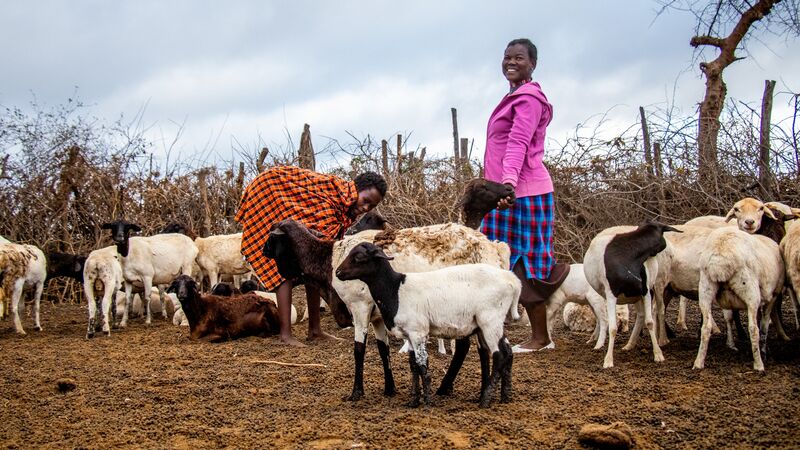
Building resilience
This sparked a domino effect that saw Patinaai Osim grow to become the holistic organisation it is today. ‘For us to achieve our goals around education, we need to address women’s financial independence. For us to address environmental issues, we need to educate our women and men’, says Semerian. ‘You cannot do one without the other – all of these issues interconnect.’
Unfortunately, the impact of climate change on Semerian’s village is getting worse and Kenya is currently facing its worst drought in over 40 years. Rural communities in Kajiado have lost their livestock – a vital source of food and income – and the county is in the midst of a hunger emergency.
Patinaai Osim has recently dug five boreholes in the local area, giving 12,000 households access to water. They’ve partnered with local schools to plant trees on the grounds and teach children the importance of preserving natural resources. And they’re working to create alternative sources of income beyond agriculture and the traditional practice of cutting down trees to make and sell charcoal.
With initiatives like these, the organisation aims to empower Kenya’s pastoral communities to create sustainable livelihoods and build resilience for generations to come.
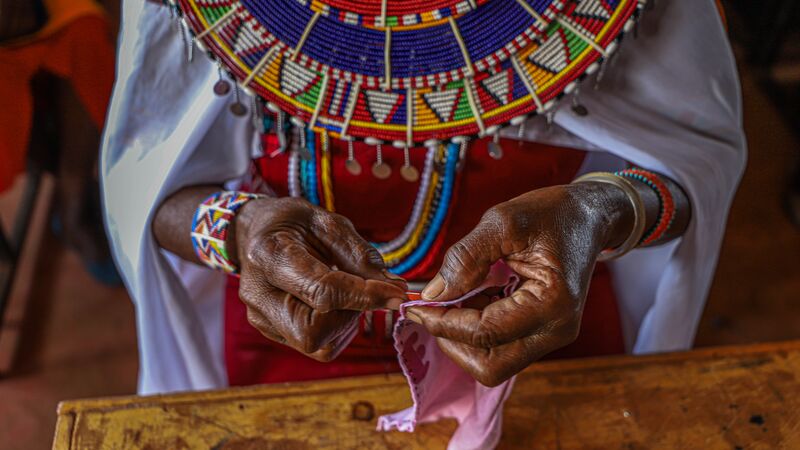
Looking to the future
So what’s next for Patinaai Osim and how is The Intrepid Foundation helping? One of Semerian’s goals is to build a women’s empowerment centre. This project will equip Maasai women with the skills they need to embark on sustainable income-generating activities, such as making and selling traditional handicrafts without losing the profits to any middlemen.
‘We’ve managed to get a piece of land and are looking to create a hub where women can meet and access training, do their work and sell their wares at a shop. We’re on the way to Amboseli National Park, so we can attract a lot of support from travellers’, Semerian says.
‘Through our tailoring program for Maasai women, we not only support them with valuable skills and resources but also provide an avenue for cultural preservation. Our program aims to promote and sustain traditional Maasai craftsmanship, including the art of tailoring of traditional attire and beadwork,’ says Semerian. ‘By preserving and promoting these practices, we are contributing to the preservation of Maasai culture and heritage, which is an integral part of sustainable tourism.’
The Intrepid Foundation will support the expansion of Patinaai Osim’s women’s groups, empowering 100 extra Maasai women in the process. That funding, plus travellers’ donations made through The Intrepid Foundation will reinforce Patinaai Osim’s livelihood programs and directly empower women and girls to identify and undertake alternative income-generating activities to support their families.
If Semerian and Patinaai Osim’s story so far demonstrates anything, it’s that the path to positive change can be unpredictable. But with enough passion and determination, anything’s possible.
Want to support Patinaai Osim? Donate via The Intrepid Foundation or visit patinaaiosim.org to learn more.

